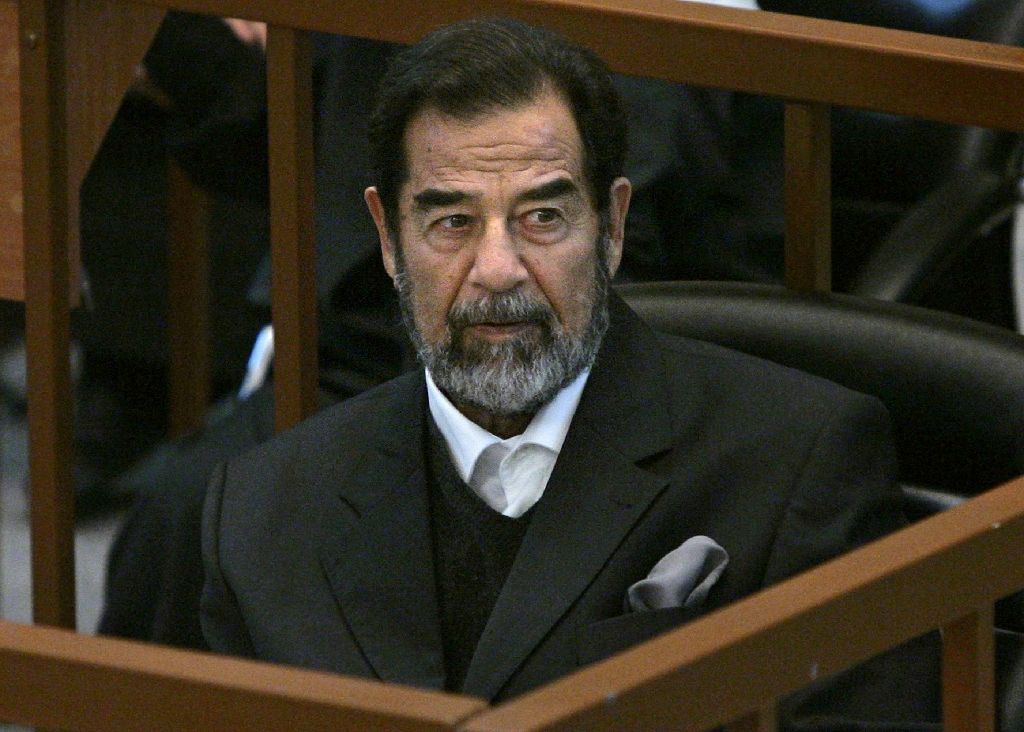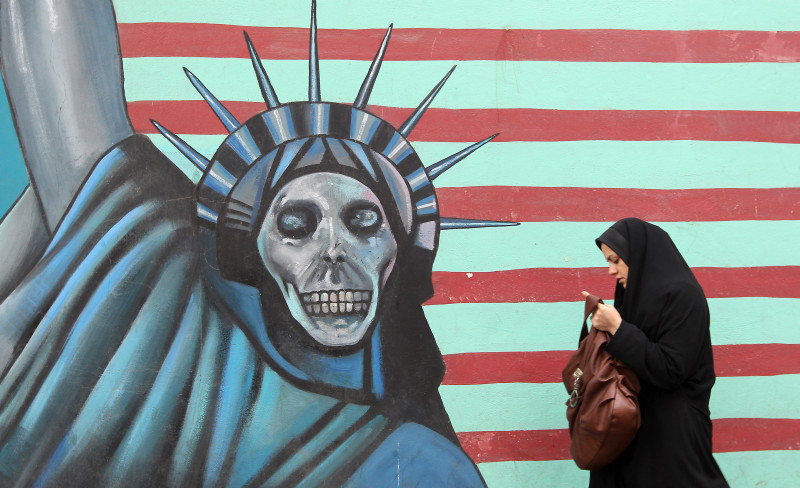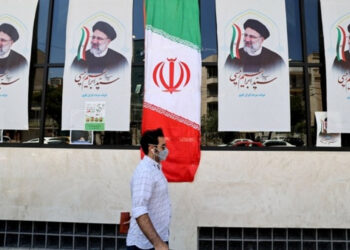The United States incurred 450,000 casualties in WWII and over $4 trillion (adjusted for inflation) in treasure, fighting Germany, Italy, and Japan. The country then suffered further losses of life and capital in the Korean War, Vietnam War, Afghanistan, Iraq, and surrogate conflicts with Russia and China.
But today, the U.S. is allied with Germany, Italy, and Japan. Better relations with these former foes followed relatively soon after the war. Post-war developments have been similar in other conflicts, with security arrangements and renewed commercial ties. No matter how costly the war, once ended, a just armistice signals a decisive end and ushers in a new beginning, a clean start. The decks are cleared, so to speak.
With Iran, the U.S. has had no war and no armistice. There has been no end and thus, no new beginning. There is instead a troubled history, with third parties stoking the fires, media-propagated misinformation, an inability to understand each other, and the American labeling of Iran as “enemy number one.”
Iranian Coup
The troubled history of Iran-U.S. ties, beginning soon after WWII, is at the foundation of broken relations today. During the war, Iran was invaded by Russia from the north and by the U.K. from the south. After the war, Russia was unwilling to leave northwestern Iran. It was the United States standing firm that forced Russia to leave Iran. Iran and the U.S. had a great start after WWII.
Then, in 1953, after the duly elected Prime Minister Mohammad Mossadegh nationalized Iran’s oil, the U.K. embargoed Iran’s oil. The CIA joined the British MI6 to remove Mossadegh and restore the Shah to the throne. An oil consortium was formed by the U.S. and the U.K. to control Iran’s oil industry for their own benefit.
For the next 25 years, the U.S. supported the Shah’s increasingly oppressive regime, which was highly unpopular with the religious establishment and underprivileged. Widespread uprisings prompted the Shah to leave Iran in January 1979, ushering in the Iranian Revolution and the formation of the Islamic Republic in April 1979.
Hostage Crisis
When the Shah sought cancer treatment in the United States, students scaled the walls of the U.S. Embassy and took 52 American hostages for 444 days. The students feared that the CIA was about to mount another coup as it had in 1953.
While this hostage-taking might have been resolved without undue rancor, it became untenable after Ayatollah Khomeini supported the unlawful action of the students. The government and the students were now both responsible.
The parading of innocent hostages on television and the media’s daily reminder of their captivity was a humiliation Americans had not felt before. It became etched in the psyche of the nation and was continuously revived with Iranians’ “Death to America” chants.
Iran-Iraq War
In September 1980, Iraq invaded Iran to grab a strategic piece of land for enhanced access to the Persian Gulf. Iraqi President Saddam Hussein felt he had a green light from the United States and saw an opportunity with the Iranian military in disarray and the country condemned the world over for the taking of U.S. hostages.

The United States worked behind the scenes to impede the United Nations from condemning Iraqi aggression at the outset of the war. During this 8-year war, the U.S. and its allies supported Iraq with military equipment and intelligence, Saudi Arabia and the United Arab Emirates supported Iraq financially, and the U.S. and the rest of the West did all they could to prohibit the transfer of military equipment to Iran.
When the tide of war changed, the United States and its European allies facilitated the transfer of internationally-banned chemical weapons to Iraq. Chemical weapons killed thousands and condemned thousands more to oxygen tanks for life. During the war, Iran suffered 500,000 casualties and hundreds of thousands injured. The country became physically devastated.
Iran’s Takeaways
For Iran, there were several takeaways from the war: international law does not exist, a strong offense is the best defense, and the five permanent members of the Security Council control the United Nations.
For the Iranian leadership, the answer to their insecurity – surrounded by U.S. forces, hostile Arab neighbors, and Israel – was to strengthen their conventional military capabilities, advance their nuclear research, and develop allies in the region. They were committed to Bashar al-Assad’s regime in Syria (the only country to support Iran in the war) and to supporting Hezbollah as an ally to pressure enemies around the region.
Later, after the overthrow of Saddam Hussein and the emergence of a Shia regime in Baghdad, the Iranian leadership embraced Iraq as an ally and agreed to set aside all grievances and demands for reparations resulting from their war.
Nuclear Deal and Sanctions
After the war with Iraq, Iran-U.S. relations did not improve significantly. The revelation that Iran had secretly pursued uranium enrichment led the U.S. to tighten the sanctions it had imposed since 1979 to topple Tehran’s regime or at least to change its objectionable policies.
Oppressive sanctions motivated Iran to negotiate the nuclear deal in 2015 in return for sanctions relief. The U.S. abrogated this treaty in 2018, followed by the further tightening of sanctions. These have deprived Iranians of medicine, essential imports for the economy, and export revenues to finance needed imports.
The Iran sanctions have officially been cast. These are the most biting sanctions ever imposed, and in November they ratchet up to yet another level. Anyone doing business with Iran will NOT be doing business with the United States. I am asking for WORLD PEACE, nothing less!
— Donald J. Trump (@realDonaldTrump) August 7, 2018
This is the troubled history of Iran and the United States. For the United States, the taking of hostages, the chants of death to America, and Iranian surrogates opposing the U.S. in Iraq, Syria, and elsewhere are etched on the American psyche. For Iran, the grievances are the 1953 coup, support for the Shah and Saddam Hussein and his war, the use of banned chemical weapons, the inhumanity of continuing sanctions, and the over-the-top support for Saudi Arabia and its inhumane aggression in Yemen.
Between Iran and the U.S., there was no war with an end. There was no armistice. There was no handshake. There was no agreement to jettison the past and to move on. And so, it continues.
Third Countries
Why can’t Iran and the U.S. see the errors of their past and move on? There are several third countries in the mix, such as Israel, Saudi Arabia, and the UAE, each with their own reason to essentially impede better Iran-U.S. relations.
Saudi Arabia is committed to depriving Iran of economic and military capabilities because the ruling royal family believes Iran is committed to its overthrow. Israel, with its strong lobbying in the U.S., fears Iran more than its historically hostile Arab adversaries and promotes regime change and a big wedge between Iran and the United States. The policies of Arabs and Israel are promoted by their business lobbying, which is ever more robust as Iran wields no business power in America.
As if these forces were not enough to impede Iran-U.S. relations for the foreseeable future, members of the U.S. Congress, needing campaign donations and support of the Israeli and Arab lobbies for re-election, are fully on board for demonizing Iran.
Finally, the media in the U.S. does not present a balanced picture of Iran. American outlets generally perpetuate misconceptions about the country, especially its activities in the Middle East and further afield. Media have impregnated American hearts and minds with the message that Iran is the number one enemy. This message becomes harder to discard as it is repeated day after day, moving the normalization of Iran-U.S. relations further and further from the horizon.
This is part one of a three-part series. Read part two here.
Disclaimer: The views and opinions expressed here are those of the author and do not necessarily reflect the editorial position of The Globe Post.





















